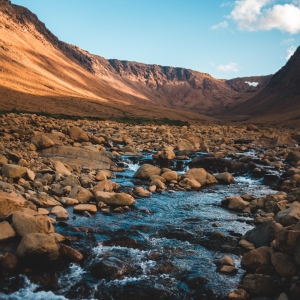The Stream, November 12, 2020: Whitefish in Lake Superior Are Being Threatened by Mining Pollution
GLOBAL DAILY WATER NEWS
- Mining pollution is threatening a whitefish species in Lake Superior.
- A new study explores the relationship with rising sea temperatures and flooding in southern Florida.
- Morocco announces plans to build Africa’s biggest desalination plant.
- A new storm in the Atlantic marks the 29th system to form this hurricane season, breaking a previous record.
New Jersey environment officials launch lawsuits against three companies for contaminating drinking water with “forever chemicals.”
“The days of free passes and soft landing for polluters in New Jersey are over. The corporations we’re suing knew full well the potential harms they were inflicting on our environment, but chose to forge ahead anyway. When companies disregard the laws meant to protect our environment, they can expect to pay.” – New Jersey Attorney General Gurbir Grewal. The state of New Jersey announced lawsuits against three companies on Tuesday who they say have failed to clean up, and in some instances continue to release, “forever chemicals” that have polluted public drinking water across the state, ABC News reports. Multiple hazardous substances including arsenic, asbestos, benzene, chromium, lead, PCBs and other pollutants were found in groundwater, soils and wetlands according to the lawsuit. The claims are the latest in a years-long effort by New Jersey environmental officials to hold companies accountable for water contamination.
In context: Who Pays? PFAS Lawsuits, Legislation Raise Question of Pollution Liability
IN RECENT WATER NEWS
California Water Board Collects Data on Household Water Debt, Utility Finances—More people are behind on their water bills because of the pandemic. State regulators want to know how many and how far behind.
HotSpots H2O: Water Systems in Eastern Ukraine Deteriorate as Conflict Continues – Following years of conflict between Ukraine and Russian separatist forces, frontline communities in the Donbas region of eastern Ukraine and southwestern Russia still lack access to clean drinking water and sanitation.
New Study Says Carbon Emissions Are Contributing to Flooding in Southern Florida
A recent study that looked at the relationship between sea surface temperatures in the Atlantic Ocean and recent rainfall in South Florida found that recent flooding from Tropical Storm Eta in the region could be part of a pattern of more intense rains and higher tides. The South Florida Sun Sentinel reports that the study concluded that greenhouse gas emissions from humans are likely the source of the problem, and that the amount of rain falling in southern Florida appears to be increasing.
Jeremy Klavans, a doctoral candidate at the Rosenstiel School of Marine and Atmospheric Sciences who co-authored the study, said that the air above the water is also warmer, and thus can hold more water. ”So that means there is more water available to rain when a storm comes through,” he told the Sun Sentinel. Climate models used in the study show that without the added heat the extra carbon humans have put into the atmosphere, no extra rain would be produced.
TODAY’S TOP WATER STORIES, TOLD IN NUMBERS
MAD 10 BILLION ($1 BILLION)
Morocco announced a project to build a MAD 10 billion ($1 billion) desalination plant in Casablanca, which is set to be the largest seawater desalination plant in Africa. Morocco World News reports that the announcement comes in the wake of significant scarcity issues in Morocco’s water reservoirs. The reservoirs were filled at a rate of 45 percent in July, down from a low of 54 percent in September of last year.
In context: Desalination Has a Waste Problem
29
Subtropical Storm Theta has been named the 29th storm in the Atlantic hurricane season, as 2020 breaks the record for most stormed ever observed in one year. The Washington Post reports that Theta joins Tropical Storm Eta and that another system has been forecast to form and pass through the Caribbean. Meteorologists say Theta could develop hurricane strength and bring gusty winds, rough seas and heavy rain to Portugal’s Madeira island over the weekend.
ON THE RADAR
Pollution from the Wolverine and Mohawk copper mines are threatening whitefish in Lake Superior amid high-water levels and powerful fall storms, MLive reports. Mining waste, known as stamp sands, are a major concern for the Great Lakes Restoration Initiative, which funded a $3.9 million dredging project to project the fishes’ habitat over the summer. The problem is particularly prominent in Buffalo Reef, a 2,200-acre natural underwater structure that is vital for trout and whitefish spawning. Ongoing dredging is a temporary solution to protect the reef, but the Great Lakes Restoration Initiative has convened the Buffalo Reef Task Force to work towards a permanent fix.
Jane is a Communications Associate for Circle of Blue. She writes The Stream and has covered domestic and international water issues for Circle of Blue. She is a recent graduate of Grand Valley State University, where she studied Multimedia Journalism and Women, Gender and Sexuality Studies. During her time at Grand Valley, she was the host of the Community Service Learning Center podcast Be the Change. Currently based in Grand Rapids, Michigan, Jane enjoys listening to music, reading and spending time outdoors.







Leave a Reply
Want to join the discussion?Feel free to contribute!